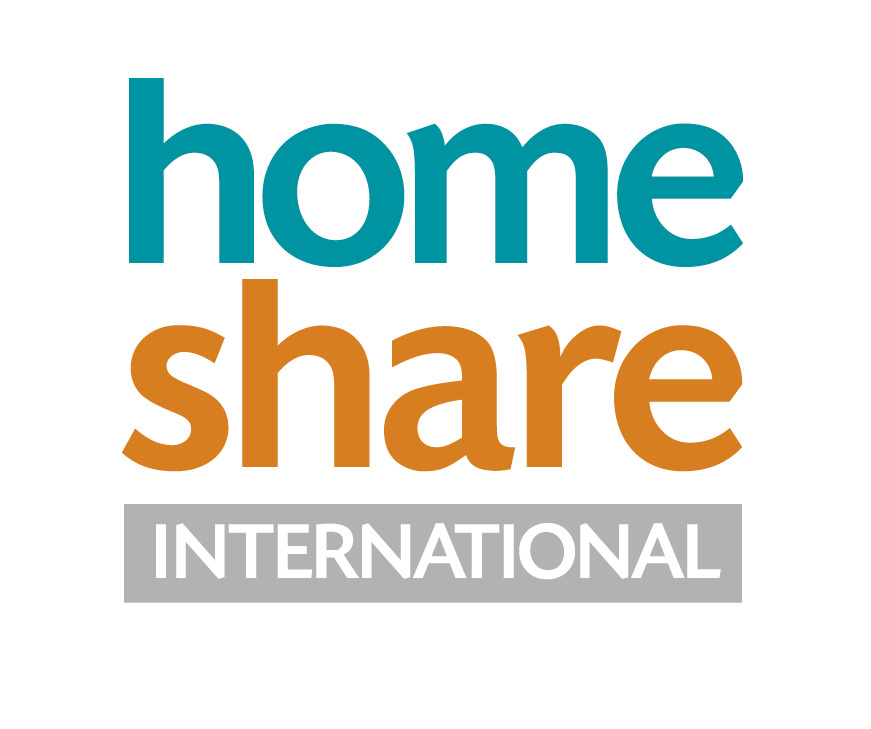What is the difference between a Carer and a Sharer?
A Carer is formally trained to give personal care and other regulated activities and therefore works under the guidelines of CQC regulations Care Quality Commission
A Sharer is a volunteer who is not permitted to give personal care and lives in the home to give an agreed number of hours of practical help and friendly companionship.
Both Carers and Sharers should have a Current Enhanced DBS and have at least two references.
Why choose Homeshare?
As well as the obvious benefits of Homeshare – nutritious home cooking, shopping, and other practical help around the home – the hidden benefits include reducing anxiety and loneliness, increased security, mental stimulation through conversation and shared meals, reduced chance of falls, better sleep, reassurance for families, and early warnings (eg the Sharer can alert the family if the person seems ill, or if they notice medication has been forgotten). Buying in this kind of help on a ‘per hour’ basis can be very expensive and on average costs about £15 per hour*– that’s nearly £11,000 per year if you have a carer for 14 hours a week, and additionally an overnight presence can cost on average £120 per night.
*The Money Advice Service
Is Homeshare safe?
Share and Care Homeshare takes safeguarding very seriously and has a robust policy in place, ensuring that all Sharers are vetted and reference- checked in line with current safeguarding procedures. Share and Care Homeshare Director, Amanda Clarke has also completed a SCIE Safeguarding Course to ensure we maintain the highest standards.
How might my Council Tax be affected by having a Sharer?
If the Sharer is a full-time student then they are exempt from Council Tax and no additional Council Tax is payable as a result of them moving in. If you are claiming a single person discount, that would not be affected.
If the Sharer is working then there is a possibility that, if you are claiming a single person 25% discount, this may be withdrawn. However, councils do have different rules as to whether a Sharer can be exempted from Council Tax. Our advice is that you call your council and discuss your personal situation directly with them. As a Sharer is deemed to be a volunteer, living in the home to give practical help and companionship, some councils are beginning to see the benefit of this for their elderly residents and may allow the elderly person to keep their discount. If that is not the case, Sharers can be asked to pay an agreed, capped, contribution to any increase in Council Tax as a result of them moving in.
*** It is also worth noting that some residents medical conditions – such as dementia, parkinson’s, severe learning difficulties or a stroke – may also be entitled to a discount.
Will I lose my benefits if I have a Sharer?
Benefits such as Attendance Allowance and Severe Disablement Benefit are not taken away if you have a Sharer. In fact, if you are claiming this kind of benefit, Council Tax may not be payable and the Sharer may not be liable for any Council Tax payments regardless of their work status. It is important you clarify this according to your personal situation.
Who pays household bills?
The Householder continues to be responsible for the household bills of the property however, the Householder is entitled to request a small agreed contribution towards the Council Tax and bills per month.
Who pays for food in a Homeshare?
Usually the Householder and Sharer each pay for their own food, or a fair share of the cost of the food if eating together.
Do I have to have internet access to have a Sharer?
99% of Sharers require broadband and so we do ask that Householders arrange for their home to have access to broadband. Most telephone companies will add a broadband package to an existing landline for a small monthly cost.
Do I have to have a TV for my Sharer?
The Householder is responsible for ensuring the property has a TV licence if there is a TV in the home but does not have to supply a TV for a Sharer. Most Sharers use their lap tops to watch TV and films.
Can I bring my own bed and/or other furniture if I become a Sharer?
Most accommodation is fully-furnished and the option to bring furniture is unlikely. However, if a Sharer has a certain requirement, such as a desk, this can be discussed with Share and Care and the Householder.
Why should I use a Share and Care Homeshare organisation to facilitate a Homeshare?
Share and Care Homeshare is the most experienced provider in the UK. The organisation has been offering Homeshare for over 17 years and has expertise, knowledge and proven Safeguarding and Conflict Resolution policies in place. For the duration of every Homeshare, the team remain regular contact with both parties to give advice and to ensure they are fully supported. The organisation has a rigorous vetting policy and is also registered to apply for Enhanced DBS [criminal records]* checks for Sharers. When a match has been agreed, a Homeshare Licence Agreement is drawn up between both parties which lays out the responsibilities and guidelines for both the Householder and their Sharer.
* An Enhanced DBS check [ criminal records check] can only be completed by a registered organisation.
Why do I pay monthly for the facilitation of the service?
The monthly contribution is paid by both the Householder and Sharer and is put towards the running of the service. The Householder receives practical support and company and the Sharer receives the accommodation. We consider both the Householder and Sharer to be our clients and we offer both our support and advice. Householders may be able to apply for a non-means-tested Attendance Allowance to pay for our service. Speak to your GP to see if you are eligible.
Why is Share and Care Homeshare a Community Interest Company [CIC]? A community interest company is a business with primary social objectives whose surpluses are principally reinvested for that purpose in the business or in the community, rather than being driven by the need to maximise profit for shareholders and owners. Designed for social enterprises that want to use their profits and assets for the public good, it is believed that CICs have a distinct and valuable role to play in helping create a strong, sustainable and socially inclusive economy.




